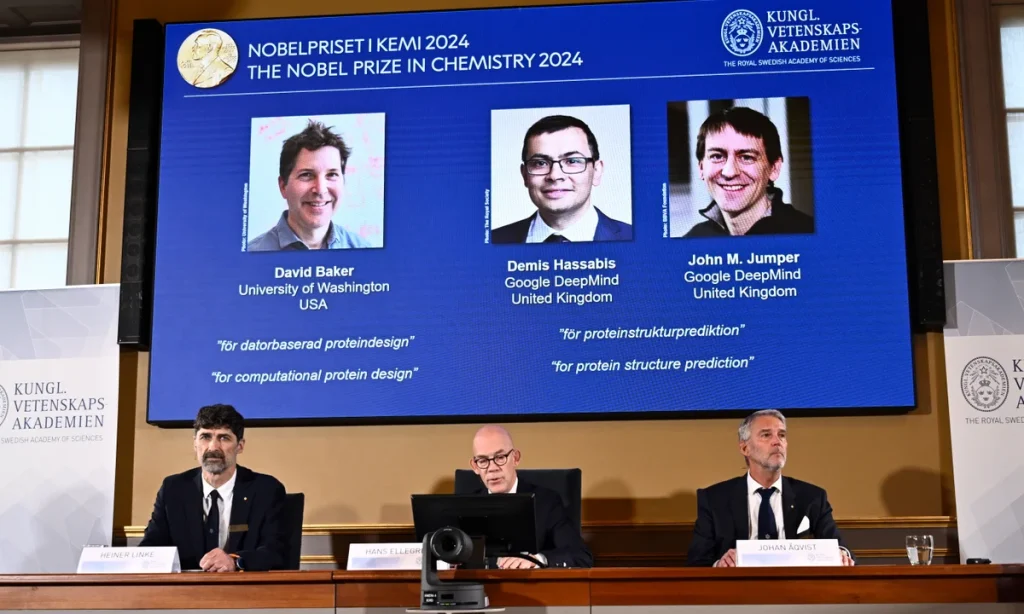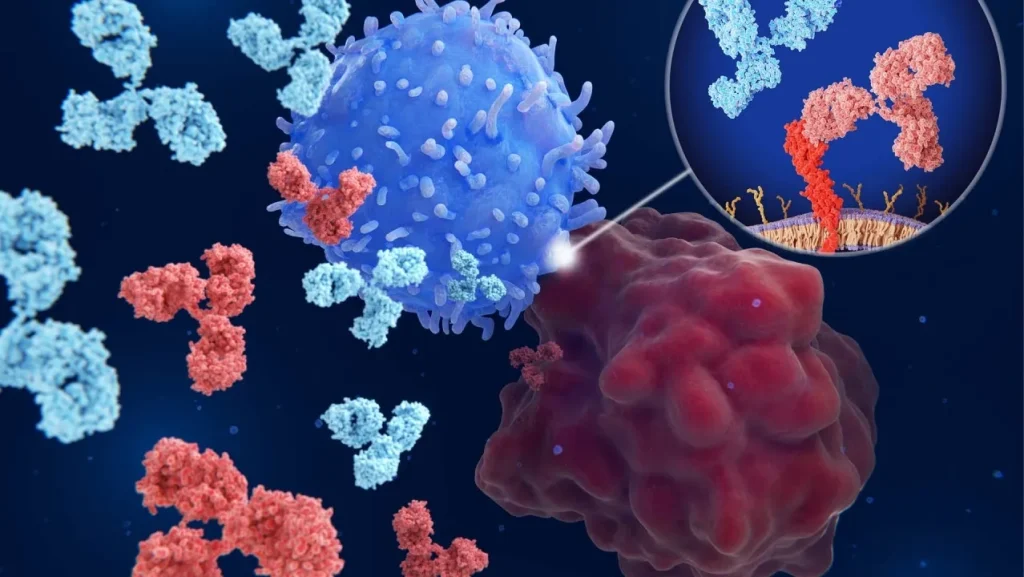Professor Demis Hassabis, a British computer scientist, has been awarded a portion of the Nobel Prize for Chemistry for his groundbreaking work on proteins, the fundamental components of life.
Co-founder of the artificial intelligence (AI) company that evolved into Google DeepMind, 48-year-old Prof Hassabis shares the accolade with Professor John Jumper, 39, and US-based Professor David Baker, 60.
Proteins, present in every cell of the human body, play a crucial role as the building blocks of life. Enhanced comprehension of proteins has led to significant advancements in medicine, aiding in the resolution of antibiotic resistance and the visualisation of enzymes capable of breaking down plastics.
Prof Hassabis said that receiving the Nobel Prize was the “honour of a lifetime” and shared his unwavering belief in AI’s transformative potential during a press conference on Wednesday.

He recounted that the Nobel committee initially tried to contact him through his wife, who ignored the call, mistaking the Swedish number as unimportant.
Encouraging children to play computer games and create them, Prof Hassabis credited his early gaming experiences as the catalyst for his foray into AI experimentation.
Upon being awarded the prize, Prof John Jumper remarked that it felt “surreal at this moment” but acknowledged that “the prize represents the promise of computational biology”.
The Nobel committee also faced challenges reaching Prof Jumper, who initially doubted the legitimacy of the call from a Swedish number and hoped it wasn’t merely a delivery notification.
Leveraging artificial intelligence, the two scientists successfully predicted the structures of nearly all known proteins and developed a tool named AlphaFold2.
Proteins consist of chains of amino acids, each folding into a distinct shape. Before their work, accurately predicting the shape of the multitude of proteins had long been daunting, yet understanding their structures is pivotal in comprehending their functions within the human body.

The Nobel committee hailed AlphaFold2 as a “complete revolution”, and the tool is currently employed for 200 million proteins globally.
Before the duo solved this conundrum, only a tiny fraction of protein structures had been elucidated. The pair received half of the Nobel Prize, while the other half was bestowed upon Prof Baker for achieving the “nearly impossible feat” of creating new proteins.
In 2003, Prof Baker utilised amino acids to design a novel protein, opening the door to developing new proteins utilised in pharmaceuticals, vaccines, and other applications.
He designed the Rosette program in the 1990s using computer software to predict protein structures.
Prof Baker, who is affiliated with the University of Washington in Seattle, expressed his excitement and honour upon being informed of the award, acknowledging that he had built upon the work of his predecessors.
The Royal Swedish Academy of Sciences announced the news at a press conference in Stockholm, Sweden. The prize fund, totalling 11 million Swedish kronor (£810,000), will be split, with Prof Baker receiving half and Prof Hassabis and Prof Jumper sharing the remaining half.


